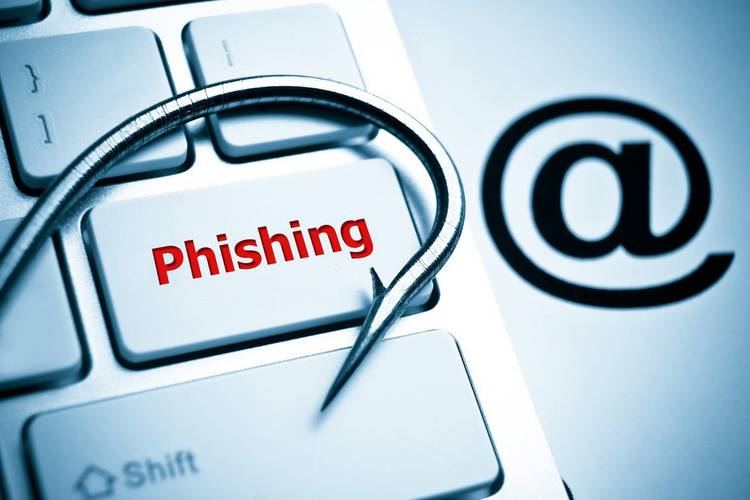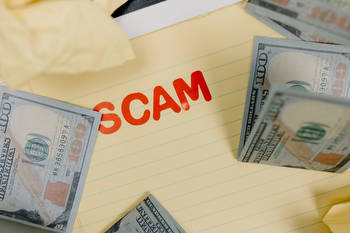How to Spot and Avoid Phishing Scams While Gambling Online

Online casinos and other gambling websites have revolutionized how many gamblers play. Whereas gambling used to be restricted to specific physical locations, punters can now freely enjoy a quick betting session regardless of where they are.
The opportunities such websites make possible are seemingly endless, and many people have taken full advantage of their accessibility and convenience. Unfortunately, players have also been taken advantage of due to a few inherent security risks.
While tireless work has ensured that gambling online is safe for the most part, some unscrupulous websites and actors seek to exploit others.
Phishing scams are one of the most common methods used by scammers to try and defraud punters out of their money, player accounts, or even identity. Therefore, knowing how to avoid scams is vital if you want to gamble online with confidence.
What Is a Phishing Scam?
Phishing (pronounced ‘fishing’) is a scam through which those looking to steal from you will pose as a company, person, or service you know and trust. They will ask you to provide personal information or click a link to visit an insecure website.
Almost all phishing scams occur over email or SMS. With the slow phase-out of SMS (short messaging service), emails are now the most common way for scammers to fish (pun fully intended) for those who will fall for their ruse. However, mobile users are still just as susceptible to these scams because most emails are viewed on these devices.
Estimates are that almost one in every 4,200 emails sent is a phishing email. While this may not seem excessive, it accounts for 3.4 billion emails daily. This is nearly 1.2% of all emails sent on a typical day.
How to Recognize a Phishing Scam
Thankfully, there are simple ways to check if you are on the receiving end of a phishing scam. These are simple ways that, try as they might, scammers can’t seem to get around. They are:
Spelling, Grammar, and Tone
Most phishing emails have less than acceptable grammar — and that is being polite. Mostly, these types of emails have multiple spelling and grammatical errors. These are highlighted because they are generally mistakes that few people would make. Amongst these are using ‘their’ instead of ‘there.’
Using inconsistent capitalization throughout the email is also a common mistake. Rather than using established title cases, scammers will throw in a capital letter wherever they feel it makes the most sense rather than where it should be.
Aside from careless mistakes, many phishing emails do not follow any form of professional that you would expect from an established online casino company. Instead, they come across as entirely informal — a major red flag.
Looking at the email address you received the suspected phishing email from is a quick way to see if it is legitimate. Almost all online casinos will only send emails from their registered domain or a domain they have publicly stated they own.
Therefore, if you receive an email from BestCasinoEver Support (as an example), always ensure that the email address attached to the name matches this (e.g., bestcasinoever.co.uk). Should the email address not be from this domain, chances are likely it’s a phishing scam.
Links and Attachments
While some phishing scams will ask you to reply to the email with the details that the scammer is after, almost all will have a link instead. This link will direct you to a spoof website that will be virtually indistinguishable from the website of the casino they are pretending to be.
Therefore, should you receive an email with a link telling you to click the link and follow instructions, avoid clicking it at all costs. Instead, hover your mouse over the link or right-click it to see what URL it is directing to. Like with the email, if it is not to the official domain of the casino (or a subdomain), it is very likely one you should avoid.
At the same time, some phishing emails come with email attachments for you to download and open. Sometimes, saving or downloading an attachment will install a trojan or similar virus on your device that can then transmit your personal information back to the scammer. Therefore, make sure you never save or click on any attachments.
How to Avoid Phishing Scams
If you know what to look for, avoiding phishing scams is pretty easy, particularly once you’ve successfully dodged a few. However, there are some additional strategies that you can implement to ensure that you continue avoiding them entirely.
Use Reputable Websites
While there is no guarantee that scammers won’t try to use the name of a reputable online casino to hoodwink you, doing so will be more challenging. This is because reputable sites have plenty of security, making their pages and domains harder to spoof.
Not just that, but a legitimate casino website means you won’t have to worry about your security while logging into your player account, playing, and making transactions. Therefore, it is best always to play using only verified and trusted sites. If you’re not sure which ones are, SlotSource has you covered.
Install Security
As an additional layer of protection, it is recommended that you install an anti-virus program on your PC or mobile device. Software like this continuously scans all your files and folders to ensure nothing malicious is hiding where it shouldn’t be.
In addition, the best anti-virus programs offer email filtering, which will help stop phishing emails before they even reach your inbox. Some, like Kaspersky, even check your email address and other information to see if your security has been involved in any data leaks or instances where you may have been compromised.
Ask Questions
If you’re unsure about an email you’ve received, reach out and ask about it. Look up the official support or contact information of the casino or person who seems to have sent the email.
Once you have this, forward the email and ask them if this came from them. Not only will you have an official answer if it didn’t, but you’ll also have alerted them that someone is trying to scam people using their brand or name. As a result, they can warn and protect others from being scammed.




































